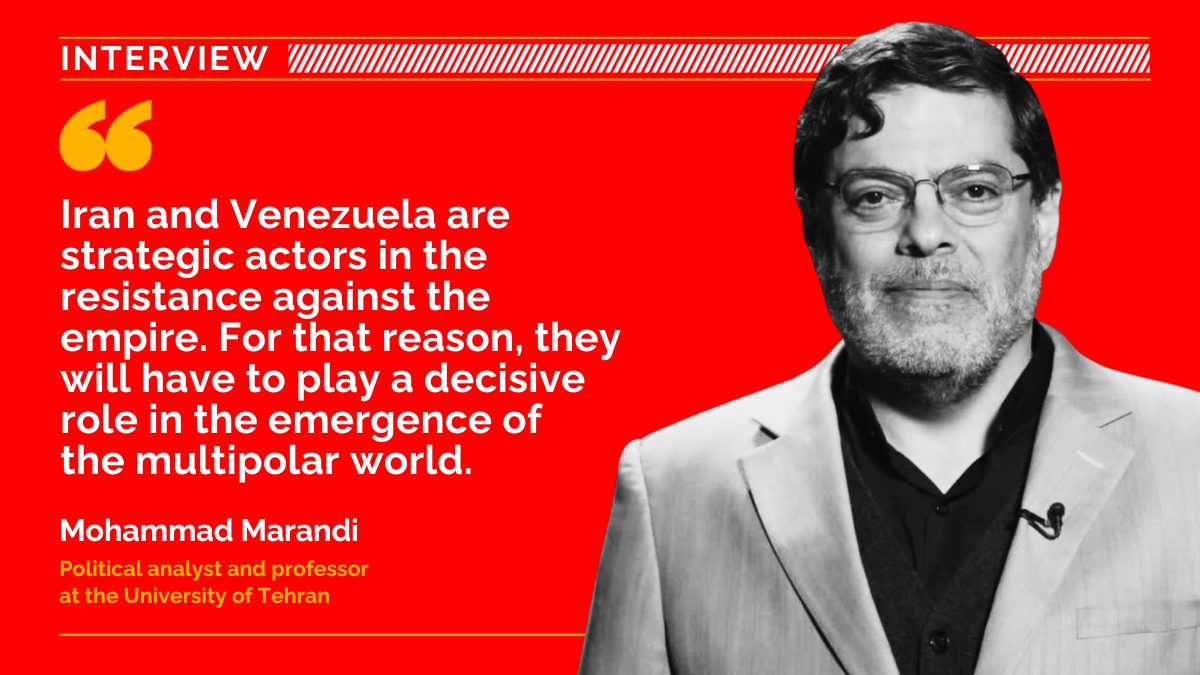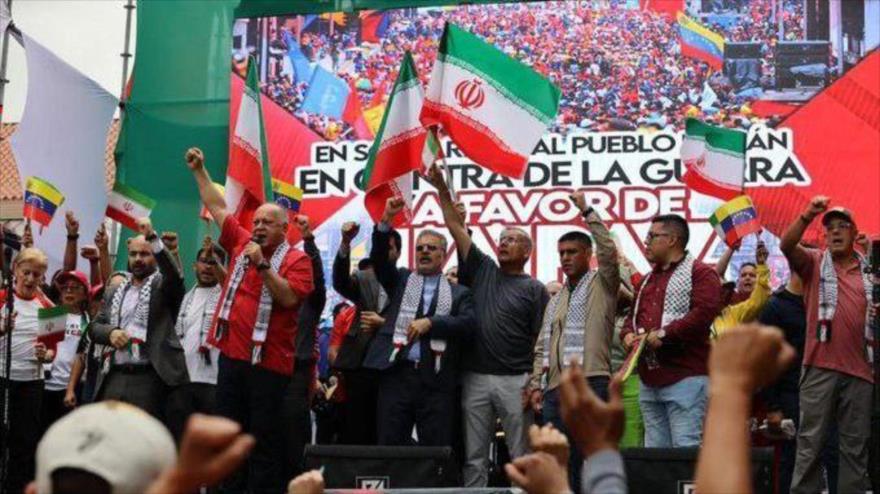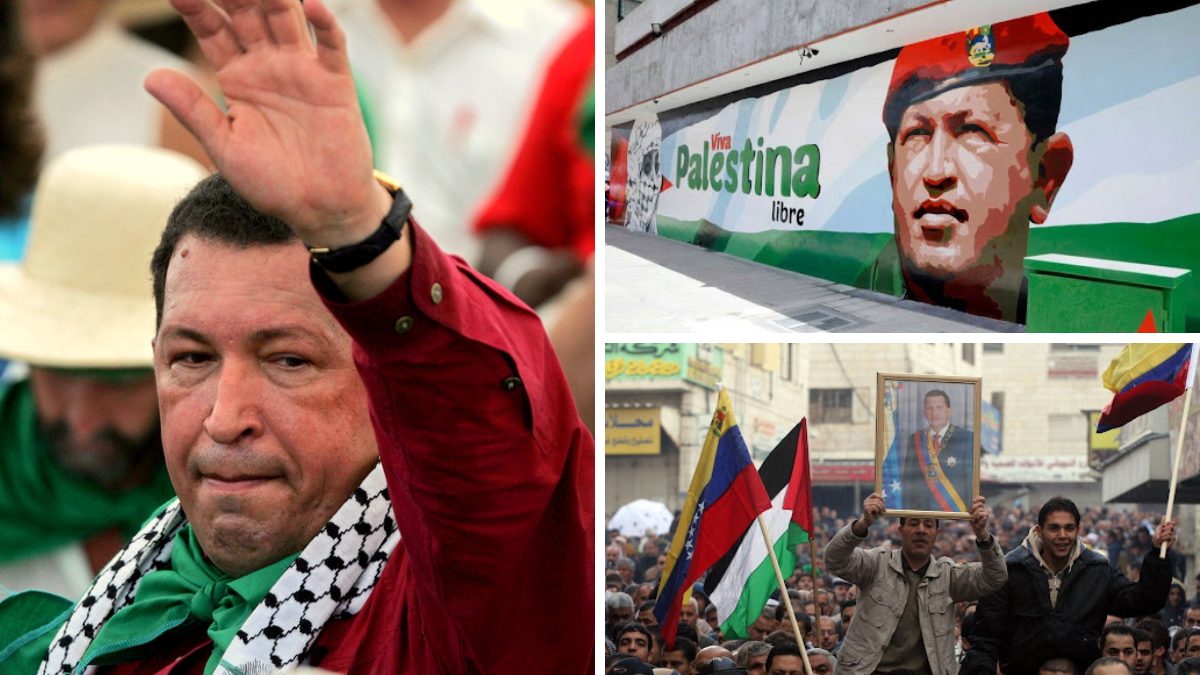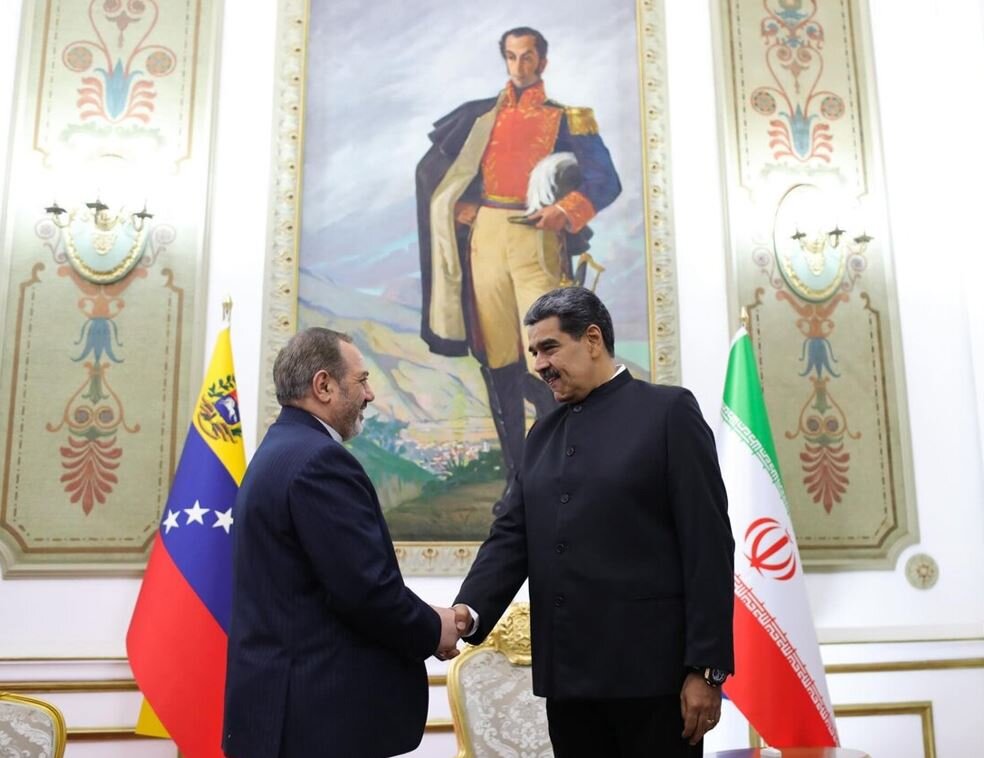Iran, Venezuela and a Multipolar World: A Conversation with Mohammad Marandi

The Islamic Republic of Iran recently endured twelve days of cruel attacks by Israel and the United States. In this context, it is important for us in Venezuela—and for all those in solidarity with the Bolivarian Process—to learn from Iran, a country that has stood firm in the struggle against imperialism and Zionism for nearly five decades.
To explore these and other issues, we spoke with Seyed Mohammad Marandi, an Iranian political analyst and professor at the University of Tehran known for his incisive critiques of Western narratives and analysis of Iran’s foreign policy. His perspective sheds light on the deepening ties between Iran and Venezuela, the decline of US hegemony, and the urgent task of constructing a truly multipolar world order.
In a recent webinar, you mentioned the significance of the Iran-Venezuela alliance in confronting US imperialism. From your perspective, why is this alliance important?
I think the alliance between Iran and Venezuela is extraordinarily important because these are two leading anti-imperialist countries in the Global South. The West has always tried to divide the Global South by creating misunderstandings and spreading disinformation. They do it to control or curtail the resistance: they want to keep us as small, isolated islands.
In Latin America, Venezuela plays an important role in educating people in the region about how Iran is a country that is advanced, anti-imperialist, and supportive of the oppressed and the marginalized around the world. Despite sanctions and wars, Iran is a country in which the lives of its citizens have improved remarkably since the Revolution [1979].
And so, Venezuela supports Iran, but Iran does the same for Venezuela. Iran has tried to show the reality of Venezuela to the Islamic world and the region. In fact, we try to show that the Venezuelan people and their government are far more principled than almost all of the governments in our region when it comes to the genocide and the Holocaust in Gaza.
Although Iran and Venezuela are separated by geography, language, and culture, they are united by a shared condition: both are targets of harsh sanctions. Their alliance is rooted in this common struggle and a joint commitment to resisting imperialism. Together, they have also worked to improve their peoples’ well-being and strengthen their capabilities to defend against imperialist attacks.

Hugo Chávez often emphasized the need to build a multipolar world rooted in solidarity among peoples and nations striving for emancipation. Today, we are witnessing the emergence of a multipolar world. How important is this for countries like Iran and Venezuela?
Iran and Venezuela are strategic actors in the resistance against the [US] empire. For that reason, they will have to play a decisive role in the emergence of the multipolar world, especially because they—as advocates of and from the Global South—know the needs of the Global South in terms of sovereignty.
The countries of Latin America, Asia, and Africa need to build a truly multipolar world, and Iran and Venezuela—as key powers that resist the empire—will play an important role. Iran and Venezuela know the challenges and needs of people better than almost anyone else, because their governments, unlike most, have been struggling against the empire for decades. And so, as the American empire declines, I believe that the voices of Iranians and Venezuelans will become more important and will be heard louder than ever before.
Iran and Venezuela have a pivotal role to play in the building of a multipolar world.
Israel and the United States recently launched a war against Iran, while Venezuela has endured endless US threats and covert military aggression. Iran and Venezuela are also both victims of US sanctions that kill thousands of civilians (this has gone on in Iran for four decades and in Venezuela for 10 years). Do you see these sanctions as part of a broader imperialist war aimed at strangling sovereign projects?
Sanctions are weapons directed at ordinary people. When the US or Israel carry out indiscriminate bombings, many civilians die, and the same thing happens with sanctions. Their actual target is ordinary people.
Why do they target ordinary people? Because they want to bring the people to their knees. Countries like Iran and Venezuela resist because their governments—like their people—want independence, sovereignty, and dignity.
Independence, sovereignty, and dignity are principles that people around the world admire and aspire to, and Iran and Venezuela are notable examples. And so, the only way to defeat the countries that carry out the resistance is to bring misery upon ordinary people so that they surrender. Imperialism makes life miserable for Venezuelans and Iranians with only one aim: that they will get tired of standing on their own feet, resisting against this evil empire, and that they will, in turn, give up. Submission to the imperialist dictates is the objective.
It is clear that those countries that are sanctioned are the ones that the empire is most fearful of. In short, the fact that Venezuela and Iran are so heavily targeted is a clear indication of the important role that they play in weakening and hopefully defeating the empire.

The peoples of the Global South, who have endured centuries of colonialism, slavery, and genocide, have always seen through the fiction of the West’s moral authority. However, the ongoing Zionist genocide in Gaza, carried out with full support from Western governments, has laid bare this hypocrisy even further. How does this brutal assault expose the imperialist character of so-called liberal democracies and the occidental humanitarian discourse?
You’re correct. The fiction of Western moral authority has been shattered because it is simply a myth. The West has always been a menace to humanity, and especially to the Global South. The empire has been crude and brutal, and nothing has changed for many centuries.
The situation today is the same, but what is happening in Gaza has unveiled the true nature of the West in front of everyone’s eyes: they are supporting racism, ethno-supremacism, colonialism, and ethnic cleansing.
The holocaust in Gaza has demolished the West’s self-appointed “moral authority” in the eyes of the entire world. The United States, the emperor of this evil empire, no longer has any clothes, and everyone knows it. The West, which always punishes other countries in the name of human rights, is seen now for what it is. The empire always makes people suffer, and sanctions are one of its weapons. Now the emperor has been exposed.
I think this is going to have a huge impact. In fact, it has already resonated deeply among peoples across the Global South, and even within the West itself.
Everyone can see what is happening, but Iran and Venezuela have a huge responsibility to expose further what the West is doing in Gaza and elsewhere.
From Palestine to Lebanon to Yemen, Iran has supported what is often called the “Axis of Resistance.” Do you see Venezuela—and other Latin American countries—as part of a broader anti-imperialist front?
Yes, without a doubt, because resistance to empire is important to all of us. The empire is enabling the Zionist holocaust in Gaza and the destruction of Lebanon, the West Bank, and Syria.
But the empire, which has been so destructive in West Asia, is not only active in this part of the world. The sanctions against Cuba, for instance, began before I was born, and in general, the empire has been brutal in Latin America.
We are all part of the Axis of Resistance against the evil empire, and we are battling it on multiple fronts. These are difficult times for the people of Venezuela and Iran, but we see signs of great success. We are witnessing the rapid decline of this empire, which is something that we could only hope for just two decades ago. It’s taking place with great speed and in front of our eyes. The days ahead may be dark, but through resistance, we will prevail.

Looking into the future, what forms of solidarity should be cultivated between the peoples of Iran and Venezuela, not only at the level of state-to-state relations, but also among workers, students, and grassroots movements?
Although there is a large physical distance between the two countries, there are huge opportunities to build ties between Iran and Venezuela, and not only the kind of alliances that the governments and armed forces pursue in terms of cooperation. There are also possibilities of working together in the private sector, in tourism, among universities and media outlets, etc.
I believe that Venezuela should prioritize the import of Iranian goods, while Iran should prioritize Venezuelan goods as well. This trade will help the resistance.
Additionally, Venezuela can be Iran’s bridge to the Latin American continent, and, conversely, Iran can be Venezuela’s bridge to the Caucasus and Central Asia. There’s a lot that can be done, and while it may seem difficult now, I think that we are slowly moving in that direction.
